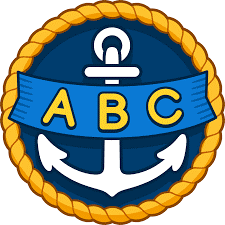Phonics Programme
All Aboard Phonics
Foreland Fields School have adopted the All Aboard Phonics programme from September 2022.
The programme will ensure:
- that a consistent phonics progression and approach is used throughout the Pioneers Pathway with positive impact on pupil progress.
- that the Foundation Pathway curriculum prepares pupils with phonics awareness for future learning on the Pioneers Pathway as appropriate to individuals.
- that teachers and support staff delivering phonics sessions (class and targeted interventions) have access to relevant and ongoing training linked to this systematic synthetic programme.
- that pupils are regularly assessed on their phonics skills and knowledge to support appropriate class and group work/interventions.
- that all pupils have regular opportunities to complete independent creative writing tasks to show progression of skills and support assessment.
- that Evidence for Learning is used to record Speaking & Listening examples to show progress and development over time. Written work will reflect the range of skills based tasks and creative writing opportunities for assessment and moderation purposes.
What is All Aboard Phonics?
All Aboard Phonics is a complete systematic, synthetic phonics curriculum for the early development of reading skills. It is fully validated as an SSP by the UK Department for Education. As a school we are being supported by Specialist Literacy teachers from the Kingsnorth English Hub to implement the All Aboard Curriculum.
The curriculum includes daily lesson plans in teacher manuals across Phases 1 to 6 plus digital classroom resources, a wide range of suggested activities for learners, flashcards, posters, a separate reading intervention, plus a wide range of decodable books that children actually want to read!
What is the research behind All Aboard Phonics?
The All Aboard research is based around understanding the causes of reading difficulties that has been seen in intervention work of over 15 years. The development team have a unique depth of knowledge in the area of reading intervention, based around neurology, linguistics, morphology, educational psychology, neuropsychology, and more.
The All Aboard Phonics curriculum was created as a process to avoid difficulty for every child before it develops. Our intervention can be used for any struggling learner, whatever aspect of learning to read is difficult for them.
What are pictophones?
Pictophones teach reading the way the brain wants to learn: through successful practice. A pictophone is simply a visual representation of a sound that helps a learner segment and blend a word. Pictophones are ideal for visual learners, dyslexics, beginners, or struggling readers.
Each image represents a single sound in the English language.
For example, the Toad About to Explode represents the /t/ sound.
The Eagle feeling regal represents all “ee” sounds (ee, ea, ey, e_e)
Visual Scaffolding for Phonics
All Aboard Phonics is a great systematic synthetic phonics package for specials schools because it teaches reading in a visual way. This makes it ideal for neurodivergent learners whose brains often need additional visual scaffolding to grasp abstract auditory concepts.
You can see below a sample of how the pictophone images represent individual sounds to help learners crack our highly irregular phonetic language. All Aboard call this system trainer-text and use it throughout the programme and intervention activities.

How can parents and carers support phonics learning?
All Aboard phonics provide some fantastic online learning videos.
Follow this direct link to the Parent Training Zone:
Parent Training Zone - All Aboard (allaboardlearning.com)
Downloadable resources to use at home
Phonics/All-Aboard-Phase-2-Soundmat.pdf
Phonics/All-Aboard-Phase-3-Soundmat.pdf
Pioneers Pathway - Daily Phonics sessions
The expectation is that all students on the Pioneers Pathway have a discrete session for 15 minutes each day throughout Key Stages 1, 2 and 3.
|
EYFS (Key Stage 1 at GS)
+ Targeted pupils in Foundation Pathway |
Early communication development and All Aboard Phase 1 skills Use of pictophones from All Aboard Phonics programme Use of NELI (Nuffield Early Language Intervention) programme to support language development and Attention & Listening skills in preparation for phonics Extending individual talents as required through targeted interventions |
|
Key Stage 2 Pioneers at Class GS
+ targeted KS2 Discoverers (crossing the bridge groups) |
Continue with Phase 1 Phonics skills to promote Attention & Listening Use of All Aboard Phonics Phases 2-5 for skills based phonics whole class sessions and smaller group/individual interventions Introduction to All Aboard Phase 6 grammar and spelling activities through rich literacy curriculum offer |
|
Key Stage 3 Pioneers at Hartsdown
+ targeted Upper School Discoverers (crossing the bridge groups) |
Use of All Aboard Phonics Phases 3-5 for skills based phonics whole class sessions and smaller group/individual interventions Use of All Aboard Phonics Phase 6 to develop grammar and comprehension skills Regular opportunities to consolidate and practice previous phases Practice and demonstration use of other reading/decoding skills e.g. whole word recognition to supplement phonics awareness Regular opportunities to apply and practice phonics skills in tasks linked to Literacy schemes of work |
|
Key Stages 4 & 5 East Kent College
+ targeted Upper School Discoverers (crossing the bridge groups) |
Discrete phonics sessions to be delivered as required on an individual basis through targeted interventions Phonics to be consistently modelled through literacy sessions Opportunities to apply skills and knowledge of phonics from previous key stages through Literacy scheme of work activities Preparation for accreditation exam techniques including student awareness for careful spelling Opportunities to use writing for real-life applications including use of ICT and mobile devices |

